As ever, welcome, dear readers! It’s the beginning of December here in the Northern Hemisphere and I wished for snow—and got it. My wish didn’t come from the following, however–
“ ‘Mr. Aladdin, sir, what will your pleasure be?
Let me take your order, jot it down?’
You ain’t never had friend like me!”
sings a very large, blue spirit in a song which practically bursts off the screen with energy.

(Here it is, if you don’t know it, or if you do and, like me, never get tired of seeing it again: https://www.youtube.com/watch?v=Qx91ff77yzM )
This is, of course, from Disney’s Aladdin, which is probably how most younger people know the story—but, in fact, don’t know the story, at least the old story upon which this wonderful adaptation is based, as well as the story of how the story came to us.
I first met the story in the form in which it may have originated: orally. Before I could read, like most children, I imagine, I loved being read to and someone (mother or grandmother, I’d guess) had sat me in a lap and read me the story. I have no recollection from where—probably a children’s storybook, but a more modern one than the one I can imagine JRRT would have heard or read it from, Andrew Lang’s The Blue Fairy Book (1889).
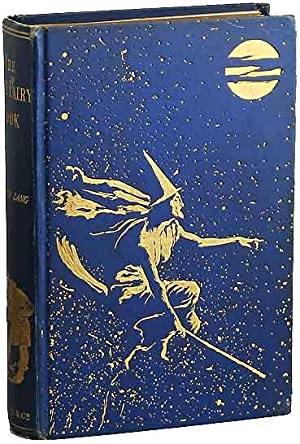
(We know that he had access to the second in the series, The Red Fairy Book (1890),
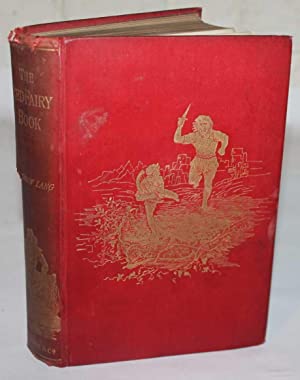
because “Soria Moria Castle” and “The Story of Sigurd”, two stories known to be associated with him, are in it, and therefore it seems to me likely that he would have been acquainted with the previous volume.)
Perhaps it was something like this—

Whatever it was, it was a story I loved—and was spooked by, when Aladdin’s “uncle” abandoned him in that underground labyrinth without getting what he wanted, the lamp.
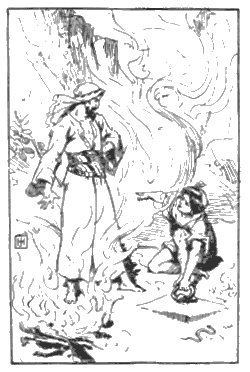
Before we go on, in case you don’t know the story, or need to refresh your memory, here’s an anonymous translation which appears to be taken from Andrew Lang’s The Arabian Nights’ Entertainments (1898): https://www.gutenberg.org/files/57/57-h/57-h.htm
I’ll wait in this garden till you finish…
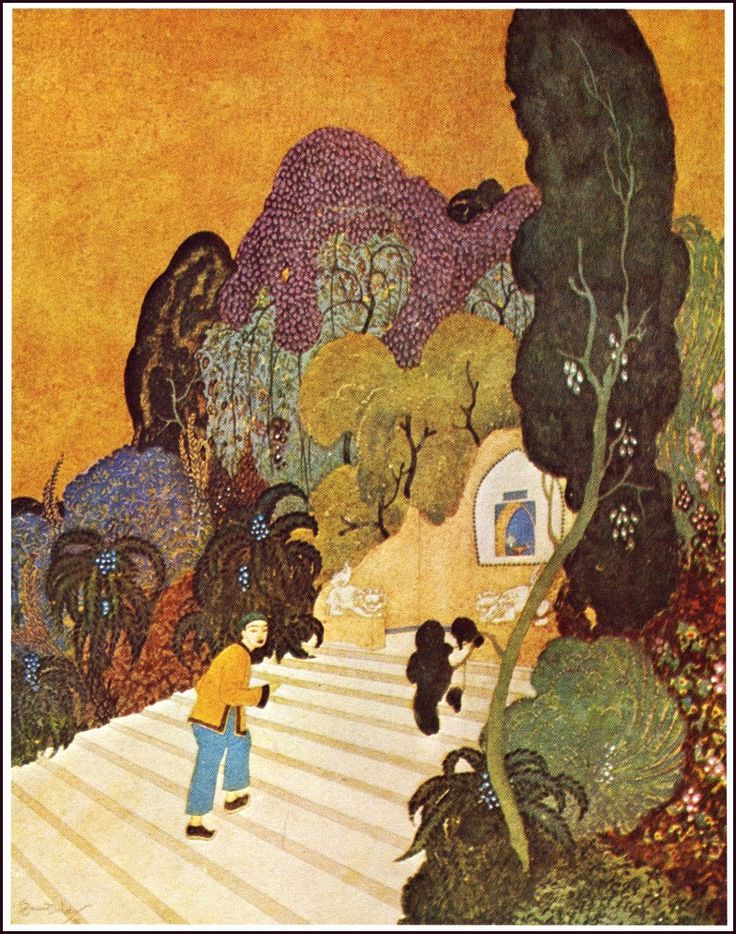
The story itself is old, first appearing in Antoine Galland’s (1646-1715)
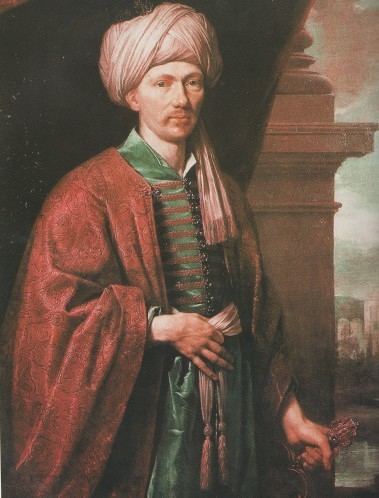
French translation from Arabic of a vast collection of stories, which he called, after the title of the manuscript, Les Mille et Une Nuits (“The Thousand and One Nights”) (1704-1717).
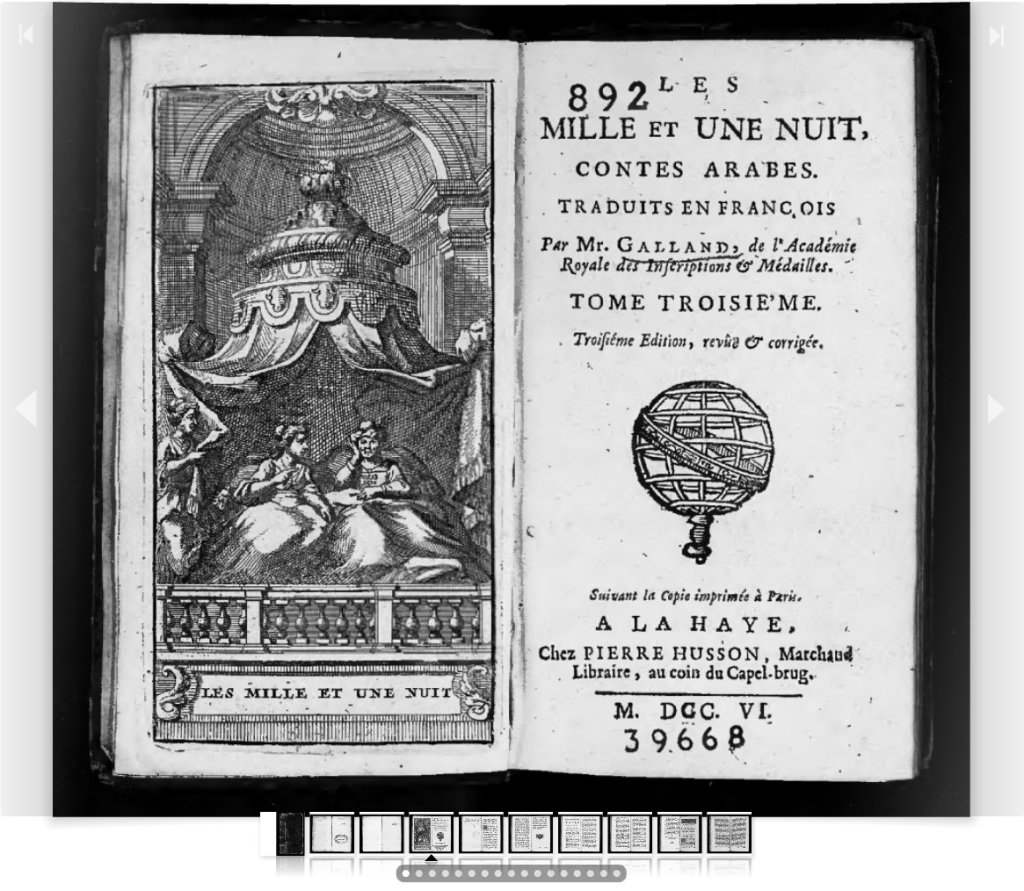
(As you can see, this is a very early Volume 3, but from an edition published in the Netherlands, although claiming to be “following the copy printed in Paris”.)
But the story of how this came to be in Galland’s collection has its own twist: it’s not from the Syrian manuscript from which Galland worked. Instead, he had met Antun Yussuf Hanna Diyab, a Syrian whom Galland had met on a visit to Paris, and who told him 14 more stories, one of them being “Aladdin”. Supposedly, Diyab recited these to Galland from memory, but, in more recent years, some scholars have wondered whether Diyab was himself the source of these stories, as “Aladdin” and another famous story, “Ali Baba”, don’t appear to survive in any other early collection. (There are also those who believe that Galland himself created them—after all, one of his friends was Charles Perrault, who gave us Mother Goose.)

The first English translation, retitled “The Arabian Nights Entertainment” appeared surprisingly quickly, in 1706 to 1721, even as Galland was still publishing his French translation. This was the famous “Grub Street edition”.
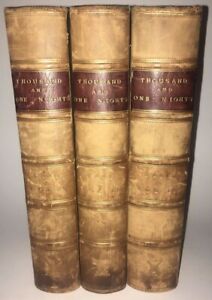
(This is an early, but not first, edition. The title on the spine is that of the first translation, but the only known copies are in the Bodleian Library in Oxford and the Princeton University library and I found this image on E-Bay!)
It was given its odd name because it was an anonymous translation, probably done by one of the many would-be famous authors
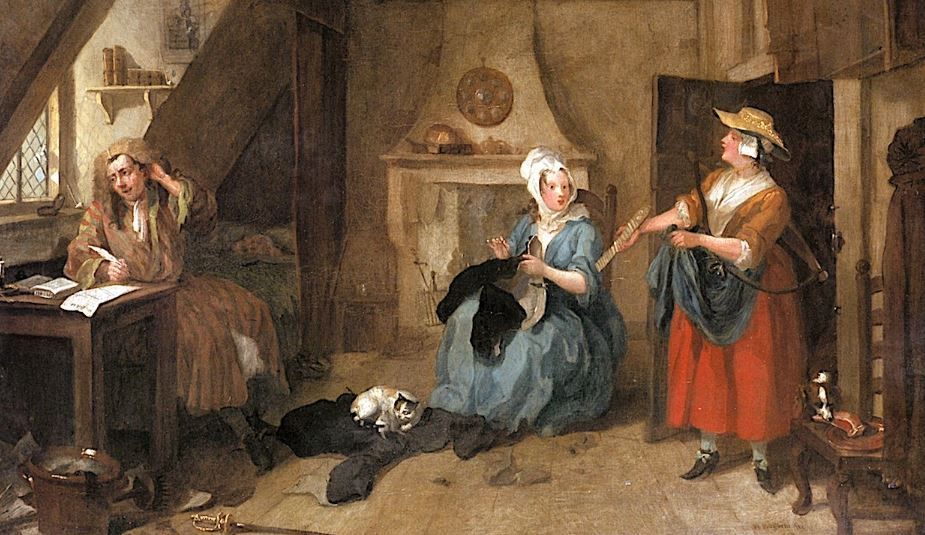
who lived in an edgy area of London (now almost disappeared and what survives has a different name), called—surprise!—Grub Street,

a medieval relic which had somehow survived the Great Fire of 1666,
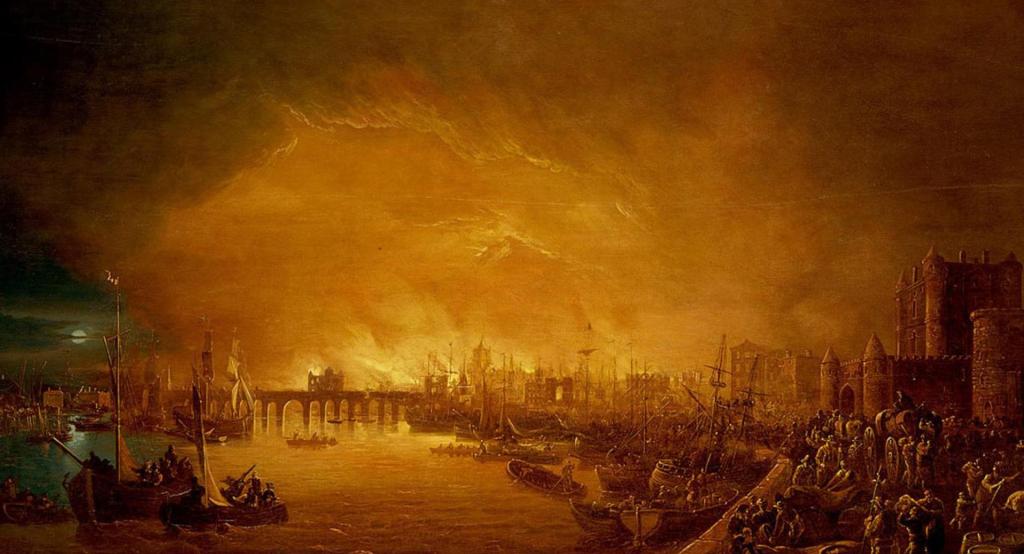
but was so run-down that rent was cheap.

Through endless reprints, forms of this translation would have been the standard until Jonathan Scott’s new translation of Galland appeared in 1811

to be replaced by Edward William Lane’s translation of 1839-1841.

Lane’s, however, was not a translation from Galland’s French, as were the Grub Street and the Scott, but a new translation based upon an entirely different manuscript, published in Cairo in the 1830s. It also has the most wonderfully elaborate illustrations, by William Harvey (and some by Lane, as well).


(I’ve recently seen a first edition copy of the 3-volume set for $1000.00, but you can have a copy for free from an 1840s US 2-volume edition by following these LINKS:
https://archive.org/details/thousandonenight01lane (volume 1); https://archive.org/details/thousandonenight02lane (volume 2); )
Into the 20th century, Lane’s was the standard translation and I can imagine that whatever was read to me was a distant descendant, although perhaps it came through The Blue Fairy Book, or perhaps from Lang’s later Arabian Nights’ Entertainments (1898), which uses the same text. Lang says that his translation goes back to the French of Galland, in fact, bringing us back in a circle.

But, outside, the snow is already melting. If I only had a dirty old lamp…

As always, thanks for reading,
Stay well,
And be reassured that, even without a genie or djinni, if you need more than one, there will be
MTCIDC
O
ps
When you read, or reread, the old story from the LINK above, you will interested to see that the authors of the Disney version have done some narrative slight-of-hand with the plot, removing Aladdin’s mother, combining the king’s vizier with the wicked magician who claims to be Aladdin’s “uncle”, turning two genies into one, and even introducing a flying carpet—and a monkey side kick for Aladdin. At the same time, they have kept the basic story and, if it’s actually based on a folktale, such variants are always possible—after all, in Galland’s original version, the story was set in China.

This is from Edmund Dulac’s illustrations for Laurence Housman’s 1914 Stories from the Arabian Nights—of which your own copy awaits you here: https://archive.org/details/storiesarabian00housmiss/page/n1/mode/2up